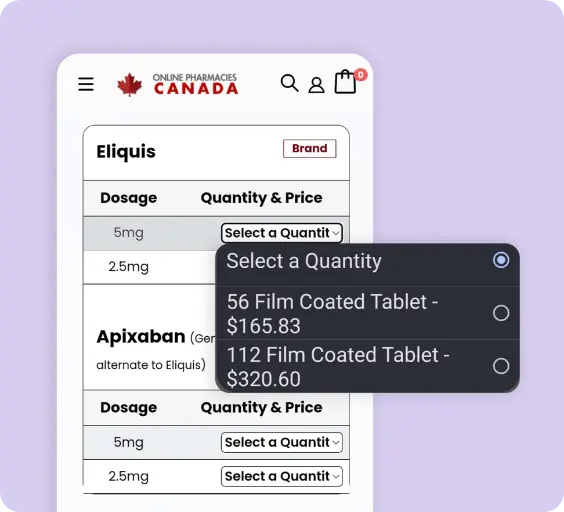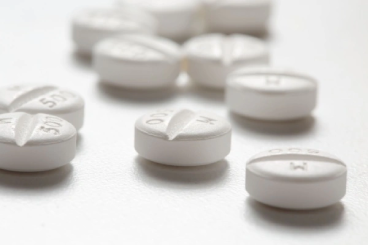Indications
Synjardy is a prescription medicine used to treat adults with type 2 diabetes mellitus to help control high blood sugar levels. It contains two active ingredients: empagliflozin and metformin hydrochloride. Empagliflozin works by increasing the amount of sugar that the kidneys remove from the body, and metformin works by decreasing the amount of sugar that your liver makes and that your stomach/intestines absorb. By combining these two drugs, Synjardy helps to control blood sugar levels and patients achieve better glycemic control.
Patients should take Synjardy with a proper diet and exercise program, and it is not recommended for patients with type 1 diabetes or for the treatment of diabetic ketoacidosis. As with any medication, patients should consult with their doctor or pharmacist for personalized information and advice on using Synjardy. It is an oral medication that is taken once a day with meals and can be used alone or with other antidiabetic drugs.
Uses and Dosage
Synjardy is available in tablet form and should be taken by mouth as prescribed by your doctor, usually twice daily with meals. Swallow Synjardy whole. Do not split, crush, dissolve, or chew the medication. Drink plenty of fluids while taking Synjardy to avoid being dehydrated. Inform your doctor and pharmacist about all the products you use, including prescription drugs, nonprescription drugs, and herbal products. To help you remember, take it at the same time each day.
The recommended dosage of Synjardy varies depending on individual patient factors such as their current regimen, medical history, and response to treatment. However, a common starting dose for patients already taking 10/ 1,000 mg Empagliflozin/Metformin Hcl, a similar total daily dose of metformin to what the patient is currently taking. The maximum daily dosage for Synjardy is empagliflozin 25 mg and metformin 2000 mg, and dosing should be adjusted based on effectiveness and tolerability without exceeding these maximums.
Side Effect
Common Side Effects of Synjardy (Empagliflozin/Metformin Hcl):
- Common cold
- Diarrhea
- Female yeast infections
- Gas
- Headache
- Indigestion
- Low blood sugar
- Stomach upset
- Urinary tract infections
- Vomiting
- Weakness
Serious Side Effects of Synjardy (Empagliflozin/Metformin Hcl):
- Difficulty breathing
- Feeling cold in hands or feet
- Frequent urination
- Joint pain
- Low blood pressure
- Low urine production
- Male yeast infections
- Nausea
- Rise in cholesterol levels
- Shortness of breath
- Slow heart rate
- Stomach pain
- Swelling in the legs or feet
- Thirst
- Tiredness
- Unusual muscle pain
- Unusual sleepiness
- Upper respiratory tract infection
- Very weak or tired
Form and Strength
Synjardy (Empagliflozin/metformin hcl) is available in the following forms and strength:
Synjardy: Tablet
- 5/500 mg
- 5/1000 mg
- 12.5/500 mg
- 12.5/1000 mg
Caution
- Speak with your doctor about the amount of alcohol you can drink, if any, while taking Synjardy. Alcohol can increase the risk of hypoglycemia (low blood sugar) and lactic acidosis (a serious medical condition).
- It should not be used in patients with severe kidney problems.
- It should not be used in patients with a history of diabetic ketoacidosis.
- It can cause low blood sugar, especially when taken with other medications that also lower blood sugar.
- It can increase the risk of a serious medical condition called lactic acidosis.
- It can increase the risk of genital yeast infections.
- It should be used with caution in elderly patients or those with decreased kidney function.
- You may experience blurred vision, dizziness, or drowsiness due to extremely low or high blood sugar. Do not drive, use machinery, or do any activity that requires alertness or clear vision until you are sure you can perform such activities safely.
- During pregnancy, this medication should be used only when clearly needed. Discuss the risks and benefits with your doctor.
- Metformin can cause changes in the menstrual cycle (promote ovulation) and increase the risk of becoming pregnant. Consult your doctor or pharmacist about the use of reliable birth control while using this medication.
Frequently Asked Questions (FAQ)
Is Synjardy safe for everyone to take?
No, Synjardy is not safe for everyone to take.
Can Synjardy cause low blood sugar?
Yes, Synjardy can cause low blood sugar, especially if taken with other medications that also lower blood sugar.
How long does it take for Synjardy to start working?
Synjardy can start working as soon as the first dose, but it typically takes several weeks before blood sugar control begins to improve.
How should I take Synjardy?
Synjardy should be taken as directed by your doctor. Typically, it is taken twice a day with meals.














REVIEWS